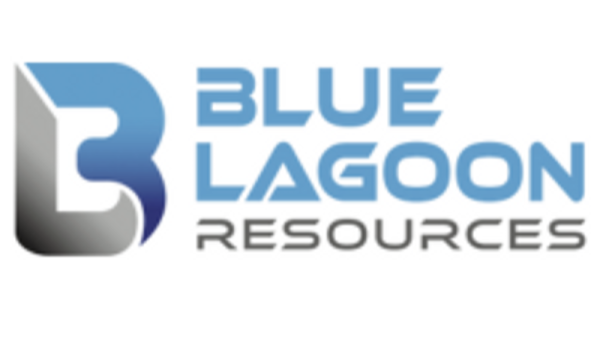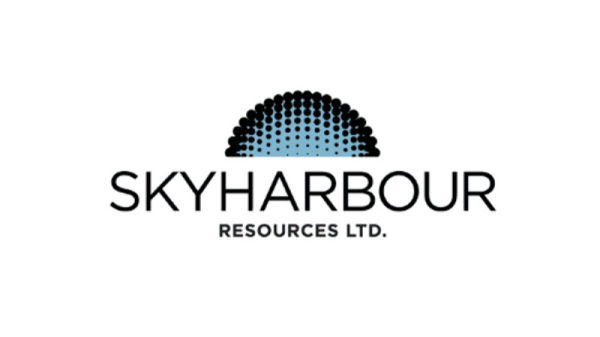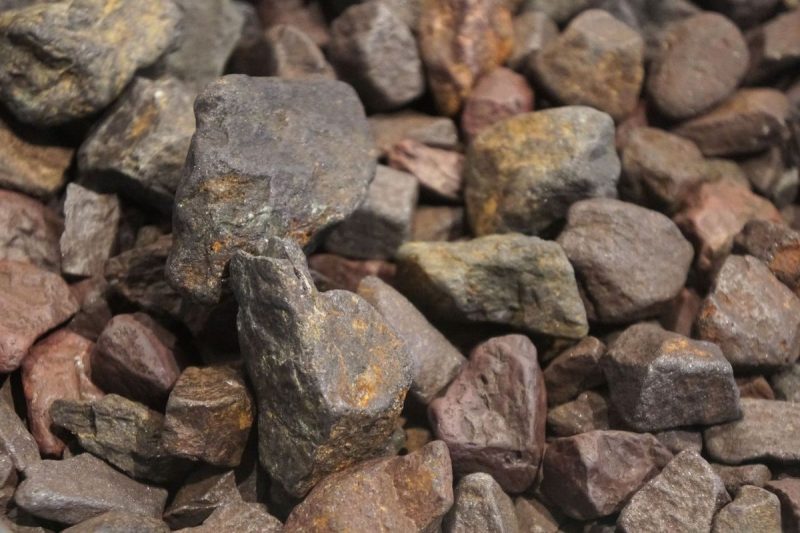The S&P/TSX Venture Composite Index (INDEXTSI:JX) climbed 0.91 percent on the week to close at 608.54 on Friday (November 8). Meanwhile, the S&P/TSX Composite Index (INDEXTSI:OSPTX) was up 2.1 percent to 24,735.99.
Statistics Canada released its October Labour Force Survey on Friday (November 8). The announcement said there was little change to employment, with the economy adding just 15,000 jobs during the month and the unemployment rate holding steady at 6.5 percent.
South of the border, Donald Trump was declared the winner of the US presidential election in the early morning hours of Wednesday (November 6). Initially, experts expected the election to be too close to call, anticipating that counting would last days or even weeks.
How could his win affect the resource sector? Trump ran on a divisive platform that would see increasing tariffs, immigration reform and cuts to government spending. He’s also made broad promises for the resource sector, particularly oil and gas, that would see a lowering of environmental standards, access to protected federal land and a focus on exports.
The actual effects of these proposals won’t be known until well into 2025. Under the Biden administration, the US became the number one oil producer in the world, pumping more than 13 million barrels of crude per day in 2024, the most under any president.
How Trump’s policies will affect the metals and mining sector is unknown. His promise to pull back on climate laws could threaten the future of the Inflation Reduction Act, which has provided billions in targeted funding to projects tied to the energy transition. However, Trump is expected to support the industry by focusing on US-based projects and streamlining the permitting process.
Following the election, the US Federal Reserve held its November meeting on Wednesday and Thursday (November 7) and announced that it would make a 25-point cut to its benchmark Federal Funds Rate.
This marks the second time the central bank has cut interest rates, with the first being a 50 point cut in September, since it started raising them in February 2022 in response to rising inflation. In the announcement, the Fed cited an easing inflation rate, close to the 2 percent target, and a job market that has become less restrictive.
A surging US dollar and rising treasury yields pushed the price of gold down following the election. Although it recovered some ground on the Fed announcement, it ultimately lost 1.85 percent on the week, closing the period at US$2,685.10 on Friday at 4:00 p.m. EST. Silver took a harder hit, shedding 3.7 percent to US$31.24 on Friday. Copper was also down, dropping 1 percent to US$4.35 per pound on the COMEX.
The S&P GSCI (INDEXSP:SPGSCI) saw a slight increase of 0.67 percent to close at 539.73.
The election pushed major US indices to record highs this week, with the Nasdaq-100 (INDEXNASDAQ:NDX) surging 5.51 percent to close Friday at 21,110.08, the S&P 500 (INDEXSP:INX) jumping 4.72 percent to finish at 5,995.53, and the Dow Jones Industrial Average (INDEXDJX:.DJI) gaining 4.72 percent as well to reach 43.989.98.
Find out how the five best-performing Canadian mining stocks performed against that backdrop.
1. Black Iron (TSX:BKI)
Weekly gain: 77.78 percent
Market cap: C$24.33 million
Share price: C$0.08
Black Iron is an iron development and exploration company focused on advancing its Shymanivske project in Southeastern Ukraine.
The mineral resource estimate in the 2020 preliminary economic assessment for the project included measured and indicated resources grading 18.8 percent magnetic iron and 31.6 percent total iron from 645.8 million metric tons of ore, with additional inferred resources of 18.4 percent magnetic iron and 30.1 percent total iron from 188.3 million metric tons.
The report suggested that the project’s development would have an after-tax net present value at 10 percent of US$1.44 billion, with an internal rate of return of 34.4 percent and a payback period of 3.33 years.
Shares in Black Iron saw gains this past week after it announced on Thursday that it had signed binding royalty and offtake agreements with Anglo American (LSE:AAL,OTCQX:AAUKF). Anglo American will invest US$4 million in return for a 1 to 1.5 percent royalty, dependent on the price of iron, as well as offtake rights to whichever is higher: 60 percent of Phase 1 production or 2.4 million metric tons of iron per year for the life of the mine.
Among other terms, the agreement also provides Anglo American with the opportunity to further invest at least 15 percent of the Phase 1 construction costs, which would increase its offtake rights to 100 percent of Phase 1 production or 4 million metric tons of iron per year following the end of the conflict between Russia and Ukraine.
2. Patagonia Gold (TSXV:PGDC)
Weekly gain: 60 percent
Market cap: C$16.28 million
Share price: C$0.04
Patagonia Gold is a precious metals production and development company primarily focused on advancing its Cap-Oeste and Calcatrau underground projects in Argentina.
Located in Santa Cruz province, Cap-Oeste hosted open-pit mining operations until 2018. While Patagonia is working on the exploration and development of the underground resource at the site, it has been able to recover gold and silver from residual leaching on site.
In the company’s management discussion and analysis, released on August 28, it reported that it had produced 889 ounces of gold and 42,363 ounces of silver from Cap-Oeste during the first six months of 2024.
According to the company’s website, a 2018 mineral resource estimate for Cap-Oeste reported measured and indicated values of 704,300 ounces of gold and 21.43 million ounces of silver from 10.56 million metric tons of ore with average grades of 2.07 grams per metric ton (g/t) gold and 63.2 g/t silver.
Acquired in a deal with Pan American Silver (NYSE:PAAS,TSX:PAAS) in 2017, the Calcatreu project is located in Argentina’s Rio Negro province and covers approximately 90,000 hectares. A 2018 mineral resource estimate for Calcatreu reported measured and indicated values of 669,000 ounces of gold and 6.28 million ounces of silver from 9.84 million metric tons of ore with average grades of 2.11 g/t gold and 19.8 g/t silver.
The company’s most recent news came on Thursday when it announced it had received full and final permitting approval to advance with construction at Calcatreau. The company is working to complete studies to develop heap leach operations at the site.
3. Trilogy Metals (TSX:TMQ)
Weekly gain: 54.44 percent
Market cap: C$238.14 million
Share price: C$1.39
Trilogy Metals is a polymetallic exploration and development company working to advance its Upper Kobuk mineral projects in Northern Alaska, US, which it owns in a 50/50 joint venture with South32( ASX:S32,OTC Pink:SHTLF).
Its most advanced asset is the Arctic copper, zinc, lead, gold and silver project, which is in the feasibility stage. In an updated feasibility study from February 2023, the company reported annual payable production volumes of 148.68 million pounds of copper, 172.6 million pounds of zinc, 25.75 million pounds of lead, 32,538 ounces of gold and 2.77 million ounces of silver.
After tax, the study pegged the net present value at US$1.11 billion, with an internal rate of return of 22.8 percent and a payback period of 3.1 years.
Trilogy’s other key asset is the Bornite copper-cobalt project located 25 kilometers southwest of its Arctic project. The site hosts widespread mineralization and has seen historic exploration dating back to the 1950s. A January 2023 technical report estimates inferred resources at 6.51 billion pounds of copper from 202.7 million metric tons of ore with an average grade of 1.46 percent.
Trilogy’s share price rose this past week, although the company’s most recent news was its Q3 results in October.
4. Jervois Global (TSXV:JRV)
Weekly gain: 50 percent
Market cap: C$30.02 million
Share price: C$0.015
Jervois Global is working to advance a global portfolio of nickel and cobalt projects. It owns the Idaho Cobalt Operations in the US, at which it suspended mine construction in 2023 due to low cobalt prices.
According to Jervois, the Idaho Cobalt Operations host the largest US cobalt resource. A 2020 feasibility study shows that they have a measured and indicated resource of 50.1 million pounds of cobalt from 5.24 million MT grading 0.44 percent, with inferred values of 12 million pounds of cobalt from 1.57 million MT grading 0.35 percent.
The company announced in June 2023 that it had entered into a US$15 million agreement through the US Department of Defense’s Defense Production Act for exploration activities at its property.
In its most recent announcement from the project, released on July 31, Jervois reported that extensional drilling at the Idaho Cobalt Operations had shown positive resource growth potential, with cobalt, gold and copper mineralization at depth. In the announcement, the company provides a highlighted result of 1.1 percent cobalt, 1.18 percent gold and 0.69 g/t gold over 1.8 meters.
Shares in Jervois Global gained this past week, but the company did not release any news.
5. Adex Mining (TSXV:ADE)
Weekly gain: 50 percent
Market cap: C$10.16 million
Share price: C$0.015
Adex Mining is maintaining its past-producing Mount Pleasant polymetallic project in Charlotte County, New Brunswick, Canada.
Mount Pleasant is composed of 102 mining claims covering 1,600 hectares., and hosts two primary zones of mineralization. According to the company’s website, the Fire Tower zone is home to deposits with indicated grades of 0.33 percent tungsten and 0.21 percent molybdenum from 13.49 million metric tons. The North Zone hosts indicated grades of 0.38 percent tin, 0.86 percent zinc, and 64 parts per million iridium.
While shares of Adex saw gains this week, the company has not released news.
FAQs for Canadian mining stocks
What is the difference between the TSX and TSXV?
The TSX, or Toronto Stock Exchange, is used by senior companies with larger market caps, and the TSXV, or TSX Venture Exchange, is used by smaller-cap companies. Companies listed on the TSXV can graduate to the senior exchange.
How many companies are listed on the TSXV?
As of June 2024, there were 1,630 companies listed on the TSXV, 925 of which were mining companies. Comparatively, the TSX was home to 1,806 companies, with 188 of those being mining companies.
Together the TSX and TSXV host around 40 percent of the world’s public mining companies.
How much does it cost to list on the TSXV?
There are a variety of different fees that companies must pay to list on the TSXV, and according to the exchange, they can vary based on the transaction’s nature and complexity. The listing fee alone will most likely cost between C$10,000 to C$70,000. Accounting and auditing fees could rack up between C$25,000 and C$100,000, while legal fees are expected to be over C$75,000 and an underwriters’ commission may hit up to 12 percent.
The exchange lists a handful of other fees and expenses companies can expect, including but not limited to security commission and transfer agency fees, investor relations costs and director and officer liability insurance.
These are all just for the initial listing, of course. There are ongoing expenses once companies are trading, such as sustaining fees and additional listing fees, plus the costs associated with filing regular reports.
How do you trade on the TSXV?
Investors can trade on the TSXV the way they would trade stocks on any exchange. This means they can use a stock broker or an individual investment account to buy and sell shares of TSXV-listed companies during the exchange’s trading hours.
Data for this 5 Top Canadian Mining Stocks article was retrieved at 1:00 p.m. EDT on November 8, 2024, using TradingView’s stock screener. Only companies trading on the TSX and TSXVwith market capitalizations greater than C$10 million are included. Companies within the non-energy minerals and energy minerals sectors were considered.
Article by Dean Belder; FAQs by Lauren Kelly.
Securities Disclosure: I, Dean Belder, hold no direct investment interest in any company mentioned in this article.
Securities Disclosure: I, Lauren Kelly, hold no direct investment interest in any company mentioned in this article.


































